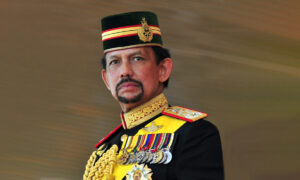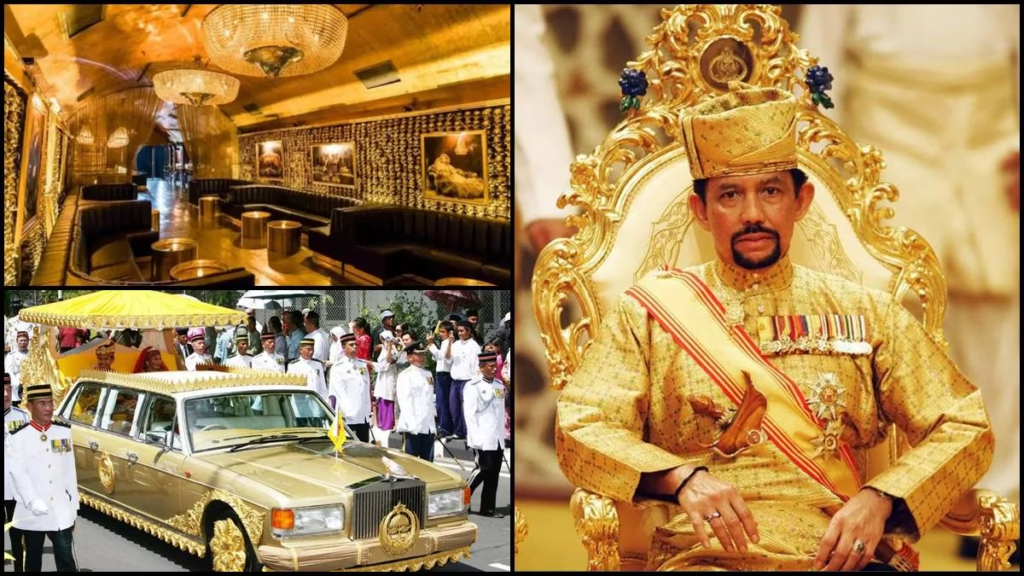Introduction to the Sultan of Brunei
The Sultan of Brunei, His Majesty Hassanal Bolkiah Mu’izzaddin Waddaulah, serves as both the absolute monarch and the prime minister of Brunei Darussalam. Ascending to the throne on October 5, 1967, he is one of the world’s longest-reigning current monarchs and has played a pivotal role in shaping Brunei’s national identity and policies. Under his leadership, Brunei transitioned from a British protectorate to a fully independent nation in 1984, which marked a significant milestone in the country’s history and the sultan’s reign.
Historically, the sultanate of Brunei dates back to the 14th century, making it one of the oldest monarchies in the region. The position of the Sultan of Brunei has traditionally been held by a lineage of Malay rulers, and the continuity of this monarchy has played a crucial role in maintaining the cultural heritage and values within the country. The sultan’s reign has been characterized by significant modernization efforts, economic development, and strong Islamic governance, which reflect the Sultan’s vision to lead Brunei towards a prosperous future while upholding traditional values.
Brunei’s unique position in Southeast Asia allows it to navigate both regional and global contexts effectively. The Sultan of Brunei plays a critical diplomatic role, capitalizing on favorable relationships with larger nations, including Australia, Malaysia, and the United States. Through his leadership, Brunei has established itself as an important player in ASEAN and has utilized its substantial oil and gas reserves to foster economic stability and development. This blend of leadership and luxury, coupled with the Sultan’s political acumen, ensures that Brunei remains a notable figure on both the regional stage and in the international arena.
The Sultan’s Role and Influence in Brunei
The Sultan of Brunei, as the reigning monarch, holds a paramount position in the governance and cultural identity of Brunei. His authority is not merely ceremonial; he is deeply involved in the political, social, and religious fabric of the nation. The Sultan serves as the head of state and government, directing the affairs of the country while ensuring the adherence to Islamic principles. This dual role reinforces his influence over both the governance system and the collective conscience of the people.
Brunei operates under a unique absolute monarchy, where the Sultan of Brunei wields considerable control over the economy and politics. By personally overseeing critical government functions, he has the ability to shape policy decisions that affect the nation’s well-being. The centralization of power enables him to implement developmental initiatives swiftly, thus maintaining economic stability and promoting growth. Through state revenues derived primarily from its oil and gas reserves, the Sultan ensures that Brunei’s wealth is utilized for national development, enhancing the quality of life for its citizens.
Socially and culturally, the Sultan of Brunei plays an integral role in shaping Bruneian identity and values. His initiatives in education, healthcare, and infrastructure have been pivotal in elevating the living standards across the nation. For instance, substantial investments in education have significantly increased literacy rates and improved access to knowledge, while healthcare initiatives have led to a robust healthcare system that benefits all citizens. Moreover, his contributions to the arts and the promotion of charitable activities reflect his commitment to fostering a sense of community and national pride. Thus, the Sultan’s multifaceted roles contribute significantly to the cohesive social structure of Brunei, reinforcing both his legacy and the prosperity of his nation.
Luxury and Lifestyle of the Sultan of Brunei
The Sultan of Brunei, one of the wealthiest monarchs in the world, embodies a lifestyle marked by unparalleled luxury and a deep connection to the rich cultural heritage of his nation. His extensive assets, including multiple opulent palaces, showcase his affluence and commitment to preserving Brunei’s royal traditions. The Istana Nurul Iman, the Sultan’s primary residence, stands as a symbol of this grandeur. It is the largest residential palace in the world, featuring lavish decorations, intricate designs, and expansive gardens, serving not only as a home but also as a venue for state functions and royal ceremonies.

The royal lifestyle of the Sultan is further highlighted by an impressive collection of luxury vehicles, including rare and custom-made cars that reflect his affinity for opulence. This collection, which features brands such as Rolls Royce and Bentley, is just one aspect of his extravagant spending. In addition, the Sultan possesses private jets that enable him to travel effortlessly, reinforcing his status as a global figure. These assets are not simply symbols of wealth; they are representations of Brunei’s cultural pride and history, showcasing the legacy of a formidable monarchy.
Ultimately, the lifestyle of the Sultan of Brunei stands as a reflection of his dedication to upholding his nation’s heritage while simultaneously navigating the complexities of modern governance and societal perceptions.
Challenges and Future of the Sultanate
The Sultan of Brunei, as a longstanding monarch, currently faces several significant challenges that could impact the future of his reign and the nation’s stability. One of the most pressing issues is the need for economic diversification. Brunei’s economy has historically relied heavily on oil and gas exports, making it vulnerable to fluctuations in global crude oil prices. With the increasing emphasis on renewable energy sources and potential declines in fossil fuel consumption, the Sultanate is compelled to explore alternative revenue streams. Initiatives aimed at developing the non-oil sectors and fostering entrepreneurship are crucial for sustaining economic growth.
In addition to economic challenges, social reforms remain a pivotal concern. The Sultan of Brunei, who has exercised considerable power, now faces rising expectations for transparency and democratic governance. With a young and increasingly informed populace, there is a growing demand for reforms that enhance civil liberties and promote human rights within the kingdom. Balancing these aspirations while maintaining traditional values poses a delicate challenge for the Sultan and his government.
The landscape in which the Sultan operates is further complicated by regional and global political dynamics. As modernization continues to influence monarchies worldwide, Brunei’s leadership will need to adapt to external pressures and internal aspirations without compromising the core values of its culture. Addressing potential conflicts between tradition and progress will be essential in shaping the Sultanate’s future. Ultimately, the Sultan of Brunei must navigate these complexities skillfully to ensure his nation’s continued prosperity and cohesion amid a rapidly changing world.


